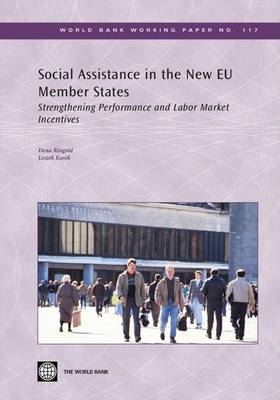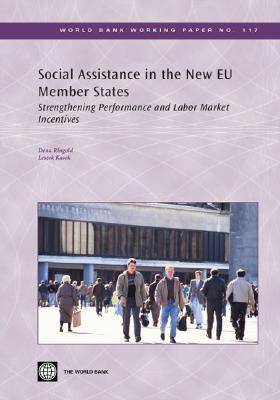World Bank Working Paper
3 total works
Social Assistance in the New Eu Member States: Strengthening Performance and Labor Market Incentives
by Dena Ringold and Leszek Kasek
Published 1 January 2007
Social Assistance in the New EU Member States
by Dena Ringold and Leszek Kasek
Published 29 July 2007
This study analyzes the performance of social assistance and family benefit programs in eight new member states of the European Union from the perspective of fiscal impact and effectiveness. It is based on household survey data for six countries, as well as budget data and information on program design collected at the national level. It finds that, although social assistance programs in the new member states are small in terms of coverage and expenditure levels (reaching 2 to 5 percent of the population), the programs are an important safety net for the poor. Programs are relatively well targeted, with between 30 and 60 percent of resources going to the poorest quintile of the population. For those who receive them, benefits can make up as much as 37 percent of average consumption of the poor.
Sustainability of Pension Systems in the New Eu Member States and Croatia
by Leszek Kasek, Thomas Laursen, and Emilia Skrok
Published 1 January 2008
This study finds that pension reforms in recent years have improved the efficiency and sustainability of pension systems in the new member states of the European Union and Croatia. However, for many countries, these probably have not gone far enough to ensure long-term sustainability, given the aging of the population. Reforms have included changes to Pay-As-You-Go (PAYG) systems, including increases in retirement ages (not at least for women), new benefit formulas, and new indexation mechanism. Some countries (Latvia and Poland) have further strengthened the link of contributions and benefits to the sustainability of the PAYG system through the introduction of national defined contribution accounts. The link is strengthened also by moving to a point system, which has been adopted by many of the countries. Several countries have introduced a second, private, pension pillar, funded through diversion of part of the pension contributions, thereby diversifying risk. However, some countries (in particular the Czech Republic, Slovenia, and Romania) will need to do more to safeguard the long-term viability of their pension systems, while others face challenges to ensure equitable pension systems and adequate living standards for all elderly people.


